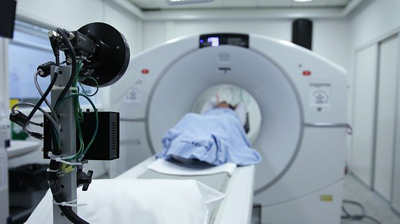
The global equipment finance industry is navigating uncharted waters with the coronavirus Covid-19 pandemic.
After speaking with a range of equipment lessors concerning this disruptive issue, The Alta Group, in a new report Perspectives on Coronavirus impacts and how the industry will respond, realized that equipment finance executives are looking for reliable insights at this time.
Significant portfolio restructuring to become the norm
The Covid-19 pandemic creates a widespread credit event for the industry where significant portfolio restructurings will now be the norm. The depth and breadth of this remains to be seen and will depend largely on each portfolio’s composition of asset types, but for many companies it is realistic to anticipate that 25% to 30% of portfolios will require restructuring.
Sectors that are being hit hard include Transportation, Healthcare, Energy and Hospitality/Entertainment. The regulatory agencies have already issued guidelines to enable the banks to work with impacted, but otherwise current, borrowers on short-term modifications in response to Covid-19.
Equipment finance companies are dealing with the pandemic not only from a business standpoint but also a personal one, which is why many are still in “battle station” mode.
On a positive note, there remains good availability of funds right now compared with the onset of the Great Recession, and some equipment finance companies are proving to be innovators as they step in to provide funding in the healthcare sector, including support to labs creating testing kits.
Healthcare manufacturers in overdrive
In fact, healthcare manufacturers are in overdrive. Medical manufacturers whose products are in high demand are focused on deploying excess inventory where needed. In some cases, short-term financing is being requested in anticipation of the shorter-term nature of the demand.
In many other cases, where speed is of the essence and where available, they are paying cash for equipment. Healthcare providers, however, are at risk as they still have to a pay for equipment that may be under-utilized in the short-term due to forced business closures and stay-at-home orders. Hospitals and special purpose providers (for example, imaging centers with MRI) remain busy but providers whose services are considered more discretionary, such as routine dental and eye care, will be disrupted at least in the short term.
The Alta Group is recommending that all captives, not just those in the healthcare sector, speak with their manufacturer parents to understand if there will be equipment shortages or pricing changes resulting from COVID-19. Managers of vendor programs will also need to have these conversations and re-evaluate.
First market test for FinTechs
COVID-19 will be the first market test for fintechs as most have not yet weathered a credit cycle.
Fintechs focused on small & medium-sized business lending will certainly experience increased delinquency although many of the largest had already tightened credit in anticipation of a recession. Those fintechs with bank partnerships may fare better depending on how the two work together to get through the pandemic. Funding line restrictions may play a significant part in determining ability to weather the pandemic and will likely create consolidation opportunities.
From an asset management perspective, values for all major equipment are down, from Machine Tools to Railcars to Trucks and Trailers, and more; many are down 15% to 30%. More specifically, great pain is being felt in plunging values for the Marine, Oil-patch, Mining, Airline, and Railcar & Locomotive sectors. There is not one sector that has been unaffected.
Airline leasing faces “most challenging period in its history”
Domhnal Slattery, CEO of global airline leasing company, Avolon, stressed that the airline company is facing “the most challenging period in the history of commercial aviation”.
Avolon has received requests from more than 80% of its current owned- and managed- customer base for relief from payment obligations under their leases. These lessees account for more than 90% of annualised contracted rental cashflow of the current owned and managed fleet.
These requests have taken a number of forms including, but not limited to, requests for short-term rent deferrals for part or all of monthly rental for a specified period of time.
From 31 March, Avolon has been engaged in active dialogue with its customer base and had agreed a number of rent deferral arrangements for an average of three months. It is expected that some form of short-term rental deferral arrangement will be agreed with a majority of our customers;
He explained: “The global fleet has been effectively grounded as countries work hard to slow the spread of COVID-19. The impact of the virus has been far reaching and the required response, both on an individual and on a community basis, is without parallel. While we have never seen a crisis of this nature, we remain confident that the industry will recover once the impact of COVID-19 recedes.”
Slattery added that Avolon has acted swiftly and decisively to address the market outlook and has re-profiled elements of its order-book to better align with market conditions. It has cancelled commitments for 75 unplaced B737MAX aircraft, also cancelled commitments for four A330neo aircraft and deferred delivery dates for an additional 25 narrow-body aircraft to 2024 and beyond.
“The net impact of our actions in the first quarter,” he said, “is to reduce our aircraft commitments in the 2020 to 2023 timeframe from 284 aircraft, as at year end, to 165 aircraft today and thereby significantly reducing our near-term capital commitments.”
While it remains difficult to determine the length or depth of this crisis, IATA has reported a sharp drop in air traffic in the first quarter and now estimate a US$252 billion year-on-year loss in passenger revenue worldwide for 2020.

